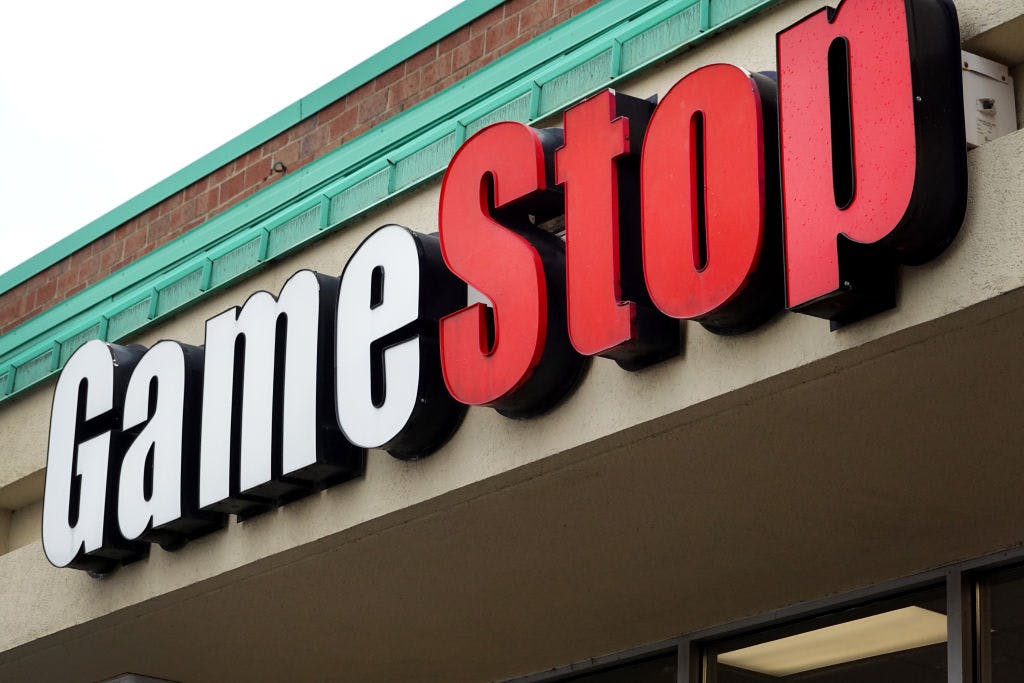Why copying Strategy’s playbook isn’t working for GameStop
Buying bitcoin is an arbitrage play for Strategy that lets management take advantage of the elevated valuation of its shares. For GameStop, it’s something that puts the source of its premium valuation at risk.
GameStop is doing the exact same thing as Strategy: issuing convertible notes to (presumably) buy bitcoin.
Yet the tactic that’s seemingly worked so well for Strategy CEO Michael Saylor isn’t working for GameStop CEO Ryan Cohen, based on the stock’s tumble after Wednesday’s announcement.
What’s the difference here?
Well, as my former colleague Jack Raines explained, (then Micro)Strategy has had a huge incentive to raise capital to buy bitcoin. The market ascribes a much higher value to the stock than the value of its underlying bitcoin holdings. And it’s not like the underlying business is doing much to justify that — revenues have been flat to down over the past decade. To oversimplify, as long as this massive premium exists, Strategy can reasonably say that it’s selling high (on its stock) and buying low (in bitcoin), regardless of the price of the cryptocurrency.
On the other hand, GameStop already has an asset on its balance sheet that investors are ascribing huge value to: its cash. We can tell this because the company’s book value per share soared after capital raises in 2024 amid the meme stock mania, and has remained very elevated thereafter. Cash, equivalents, and short-term investments currently make up about 80% of GameStop’s assets, which is the numerator in book value per share.
“GameStop is following the MicroStrategy playbook, but MicroStrategy currently trades at less than 2x the value of its Bitcoin holdings,” wrote Wedbush analyst Michael Pachter, who has an “underperform” rating and $11.50 price target on the stock. “With GameStop already trading at more than 2x its cash holdings it is unlikely that its conversion of cash into Bitcoin will drive an even greater premium.”
While on the surface, this capital raise will increase GameStop’s cash, it’s not a sure bet that this ultimately nets out that way. For starters, let’s assume some cash is turned into bitcoin. Then, remember that holders of these notes will either end up getting their cash back or diluting existing shareholders.
Buying bitcoin is an arbitrage play for Strategy that lets management take advantage of the elevated valuation of its shares. For GameStop, it’s something that puts the source of its premium valuation at risk.
At the same time GameStop was able to raise a lot of cash, the market ascribed a much higher value to that cash. The thinking here was that Cohen would pull off some kind of transformative acquisition that would reinvigorate the company’s future prospects. To quote well-known GameStop bull Keith Gill, “It becomes a bet on the management, in particular, of course, Ryan fucking Cohen.”
Since then, I’d argue Cohen has displayed some operational prowess — just look at the company’s fourth-quarter operating income. But that’s come by making the retailer leaner and less inefficient, rather anything resembling a successful growth strategy.
“We find it hard to understand why any investor would be pay more than 2x cash value for the potential for GameStop to convert that cash into Bitcoin, particularly since the same investors can invest in Bitcoin or a Bitcoin ETF themselves,” Pachter added.
The conclusion here is that traders were simply hoping that whatever Cohen used that cash for, it would be a better investment opportunity than bitcoin.
